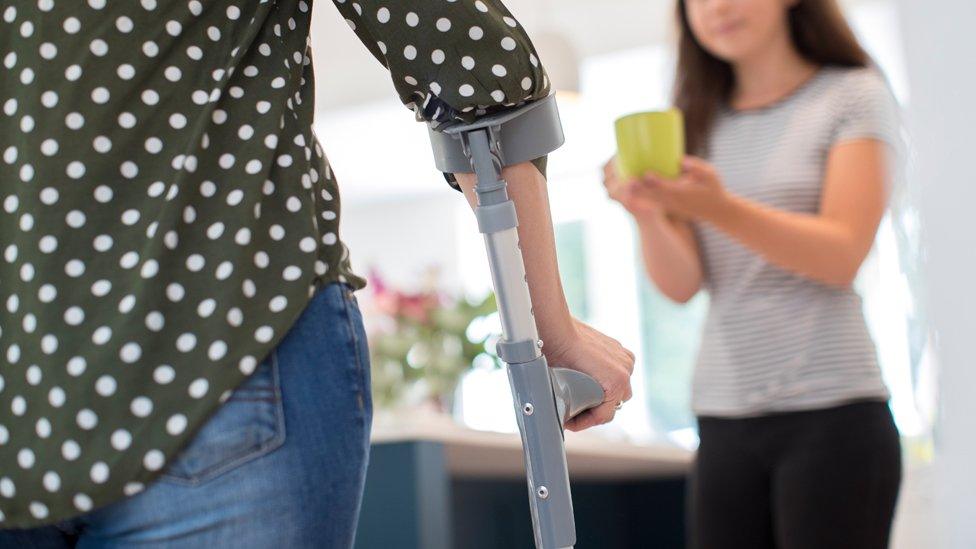NI young carers face stress and loneliness over summer
- Published
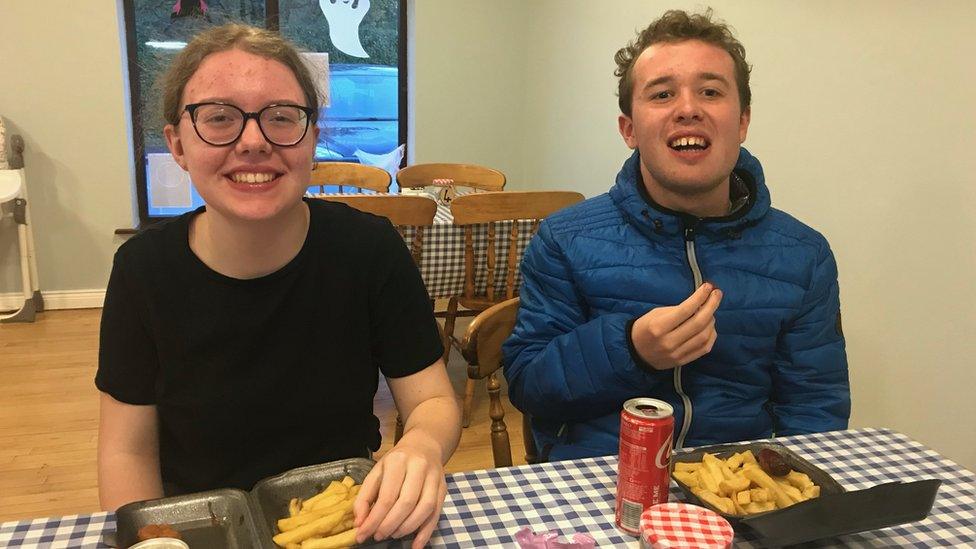
Emma Bullock - who helps to look after her brother David - is among 2,600 carers aged under 15
For many teenagers, summer holidays are synonymous with sleeping in, relaxing and getting a well-deserved break.
But for young carers, the eight-week break from school can mean increased responsibilities and stresses.
There are about 8,000 young people in Northern Ireland who undertake unpaid caring roles, with the latest census showing 2,600 of them are under-15, external.
Two young people spoke to BBC News NI about the challenges they face during the school holidays.

'In the summer, there's a lot more'
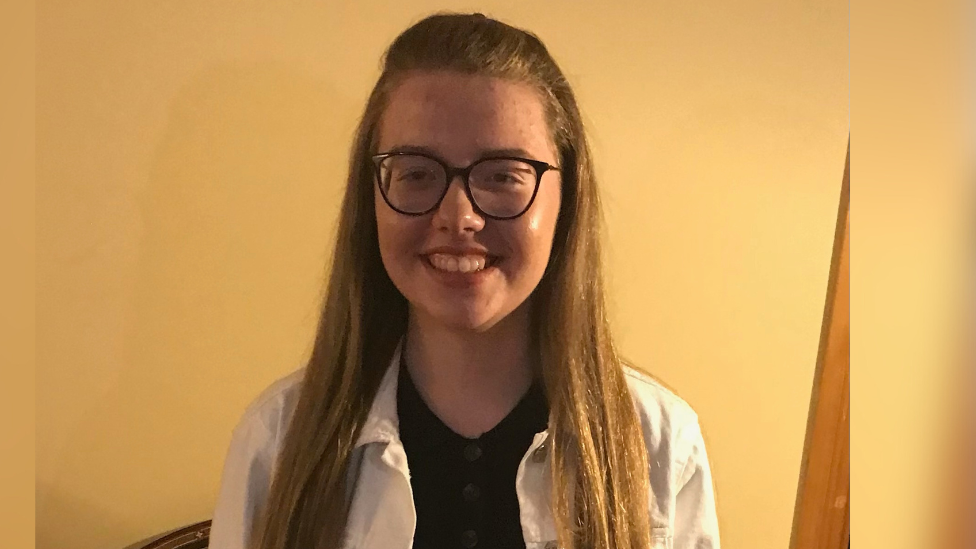
Emma spends her free time volunteering on a farm for adults with learning disabilities
Emma is 14 and helps to care for her two older brothers, David and Mark, who have learning difficulties and are non-verbal.
On a typical day, she'll help make breakfast, give them their medicine in the morning and evening, and take them for walks around their County Fermanagh farm.
But during the summer break, Emma said she takes on a lot more as both her and her brothers are off school, and much needed days out can be dependent on their moods.
"Sometimes if we're away somewhere, we have to leave early because they get a bit overwhelmed by all the people," she told BBC News NI.
"It's hard, but suppose I've grown up being like that, so it's just kind of a bit normal to me.
"People think that adults have the whole responsibility, but a lot of the time everyone has to pull their own weight in the family."
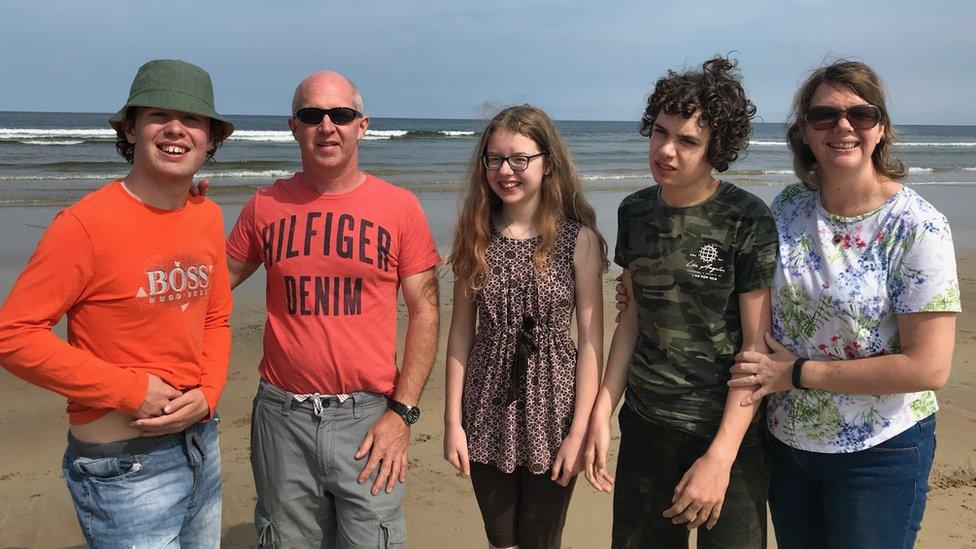
Emma helps her mum Jennifer and dad Simon with caring for her two brothers
Emma is using her experience as a young carer by volunteering at a local social farm for adults with learning disabilities, and sits on the Northern Ireland Carers Council where she can meet and talk to other young people like her.
She often looks forward to days out organised by Barnardos NI to give her a respite from her caring duties.
"It's definitely good because you kind of forget about all the stuff that's going on at home and it's just a good way to hang out with your friends and just to have a good time," she said.
'You do feel quite lonely'
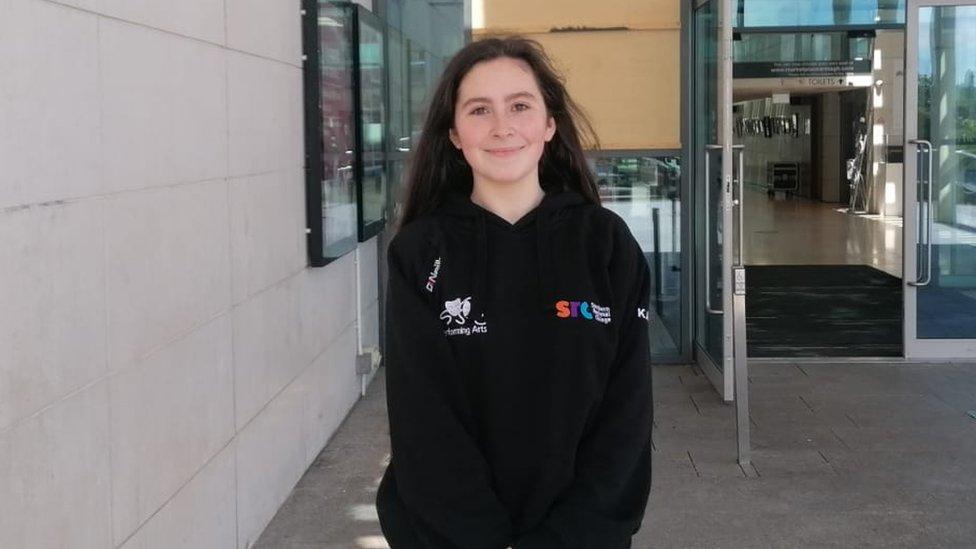
Kirsty is preparing to go off to university later this year
During the school year Kirsty from County Armagh helps her parents care for her brother Lexie, who is autistic, for up to four hours a day.
But as the summer rolls around, she finds that her hours are often double that - which can be difficult.
"Once term's over, you have to get into the routine of not having that routine," she said.
"Trying to find that routine, it's hard in the summer and you do feel quite lonely because you're just kind of away from everyone."
Kirsty, 18, said finding time to meet up with her friends could be difficult, and she often had to miss out.
"At times it is [a struggle] because you see them all having fun and being with each other, and you're just kind of like: 'I was meant to go there'."
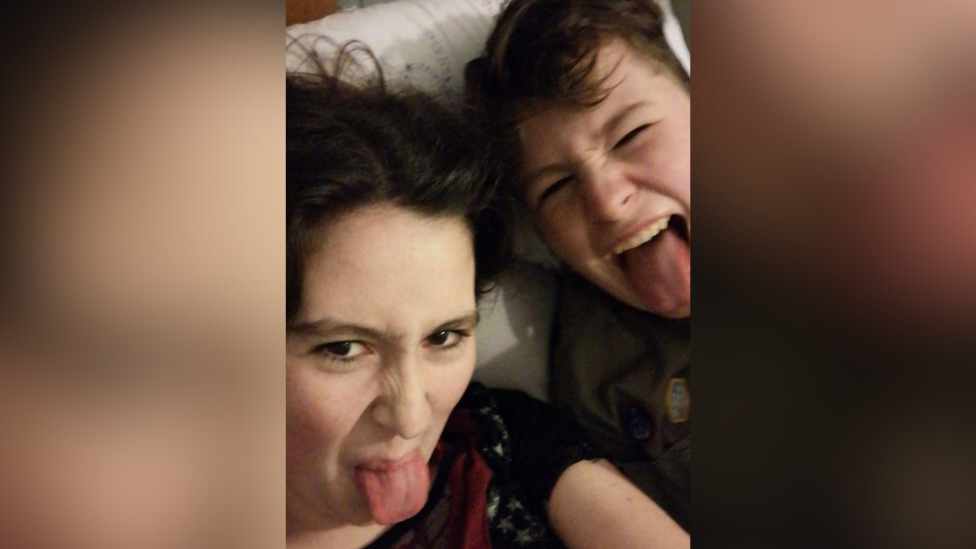
Kirsty is helped by her mum and dad, while her older sister is at university in England
In September, Kirsty will be embarking on a new journey as she heads off to university, but an exciting change has left her with mixed emotions.
"There's not going to be other siblings at home to help care for my brother, it's just going to be my mum, my dad and my brother, it's a wee bit worrying," she said.
"University is going to be a fun experience, but having to leave everything and having to start anew, it's scary but its exciting."
Hidden group
A report from Action for Children and Carers Trust found 86% of young carers were more stressed or worried during the summer holidays than during term-time.
Family support practitioner for Action For Children's young carers service Cathy Allen said there were 260 young carers in the South Eastern, Belfast and Southern Trusts who needed increased support during this time of year.
"They may be more anxious and stressed because they are dedicating more time to their loved ones, and they're not getting a break from their current role during the school holidays the way they would during term time," she said.
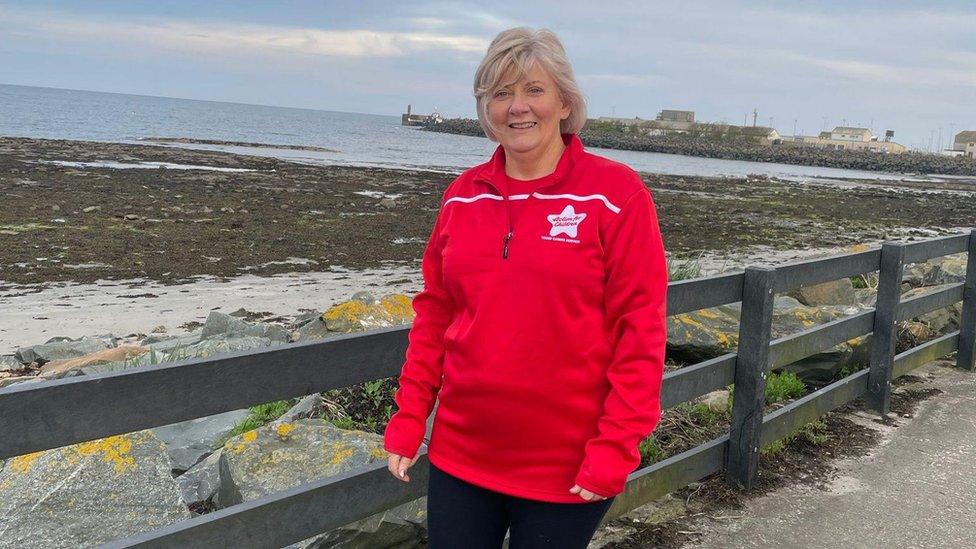
Cathy gives young carers a break by taking them on days out and running summer residentials
Ms Allen added many young carers would take on a parenting role if their parent has caring needs, or they have to work, leading to increased loneliness and burnout.
She said support services, like monthly days-out and residentials, were a lifeline for young people and need better funding.
"They are a hidden group of young people that save the government over £1m a year because they are not entitled to a carers allowance," Ms Allen said.
"At the end of the day, these young people need a break from their caring role because constantly caring for someone 24 hours a day is going to lead to burn out."
Related topics
- Published26 January 2023

- Published20 November 2022
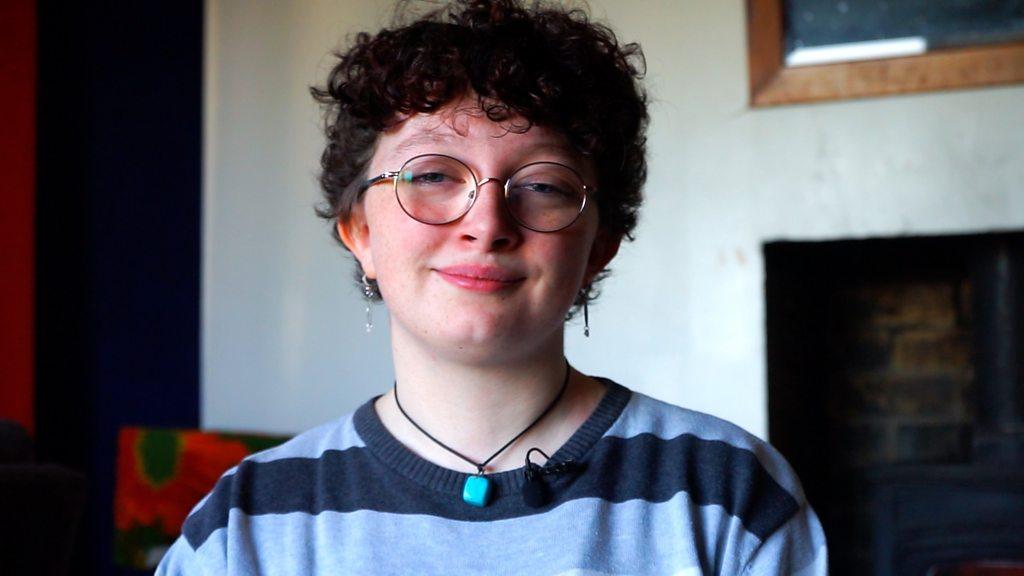
- Published12 November 2021
